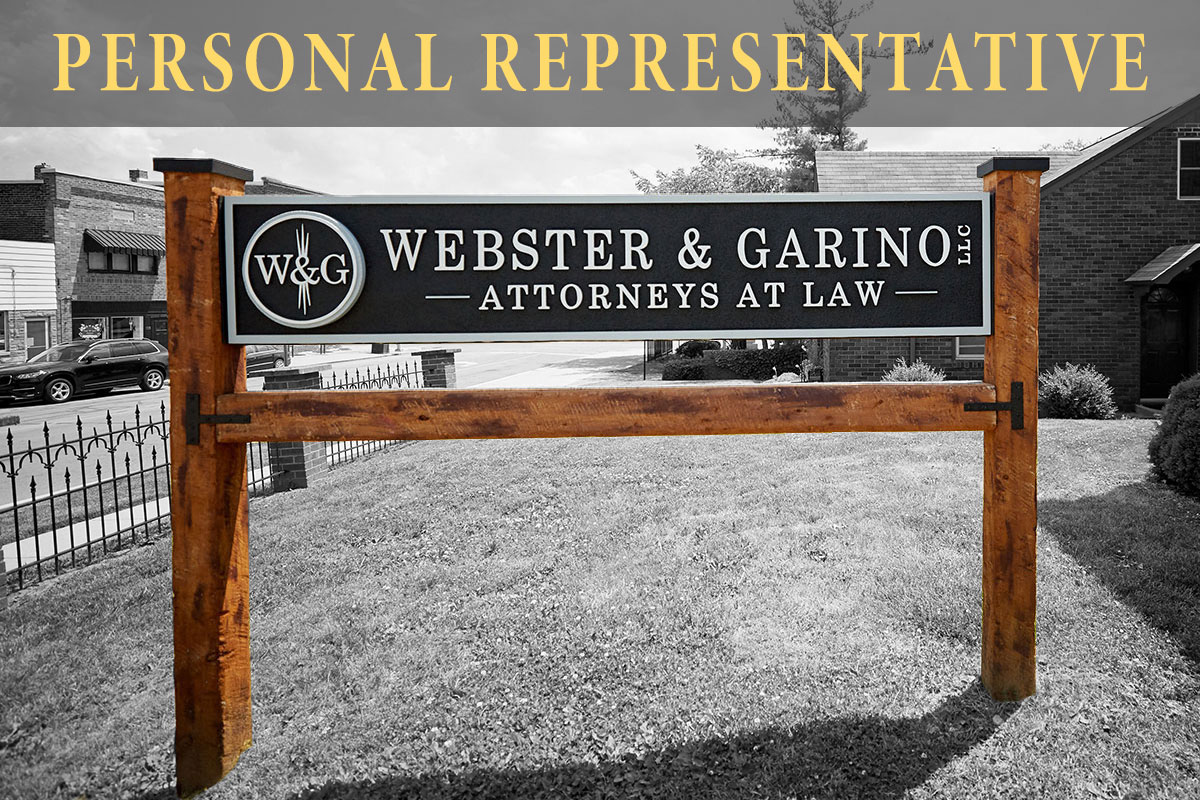 Personal Representative Services In Indiana
Personal Representative Services In Indiana
 Personal Representative Services In Indiana
Personal Representative Services In Indiana

In law, a personal representative is an administrator or executor for the estate of someone who has passed away. Personal representatives have the legal responsibility for handling an individual’s estate. They are obligated to act with honesty, loyalty, and in good faith in the best interests of the beneficiaries. Personal representatives must follow the terms of an individual’s Will if one exists. In the absence of a Will, the personal representative administrates the estate pursuant to Indiana law.
Choosing a Personal Representative
Ideally, a personal representative is identified in a person’s Will before he or she passes away. If the person named in the Will is not willing or able to act in the capacity of a personal representative, then the Court will appoint a person to serve as personal representative. In making an appointment, the Probate Court will typically look at family or named beneficiaries, however if conflict exists between the beneficiaries or heirs, then the Court may appoint a neutral third party to serve as personal representative. Personal representatives are responsible for settling the individual’s estate and navigating probate.
What Does a Personal Representative Handle?
1. One key role of a personal representative is locating a deceased individual’s probate assets, which are assets that can only be transferred to an heir or beneficiary through the probate process. Certain types of assets are transferred to beneficiaries outside of the probate Court, such as retirement accounts and life insurance with beneficiary designations. Personal representatives are also instrumental in establishing date-of-death values, which include obtaining real estate appraisals and appraising other assets such as collectibles and business interests. The date of death is important to determine the basis a beneficiary will receive in some property such as real estate. When a person passes away, the IRS allows some property to get a “step up” in basis equal to the fair market value as of the date of death. This is an important benefit to a beneficiary as it eliminates or reduces capital gains tax if the beneficiary elects to sell the property. Appraisals of property are also important to determine values for a sale or charitable distributions. Personal representatives also determine how much estate tax is owed, which is determined by the total value of what the deceased individual owned. The personal representative pays off any outstanding debts, prepares and files the person’s last income tax returns, including state and federal, and pays any ongoing expenses associated with administering the estate. Lastly, a personal representative distributes the balance of the estate to the beneficiaries.
If you need assistance with personal representative services in Indiana, Webster and Garino can help. Contact us today for questions and concerns you might have about the role of a personal representative, selecting a personal representative, or carrying out personal representative duties.

